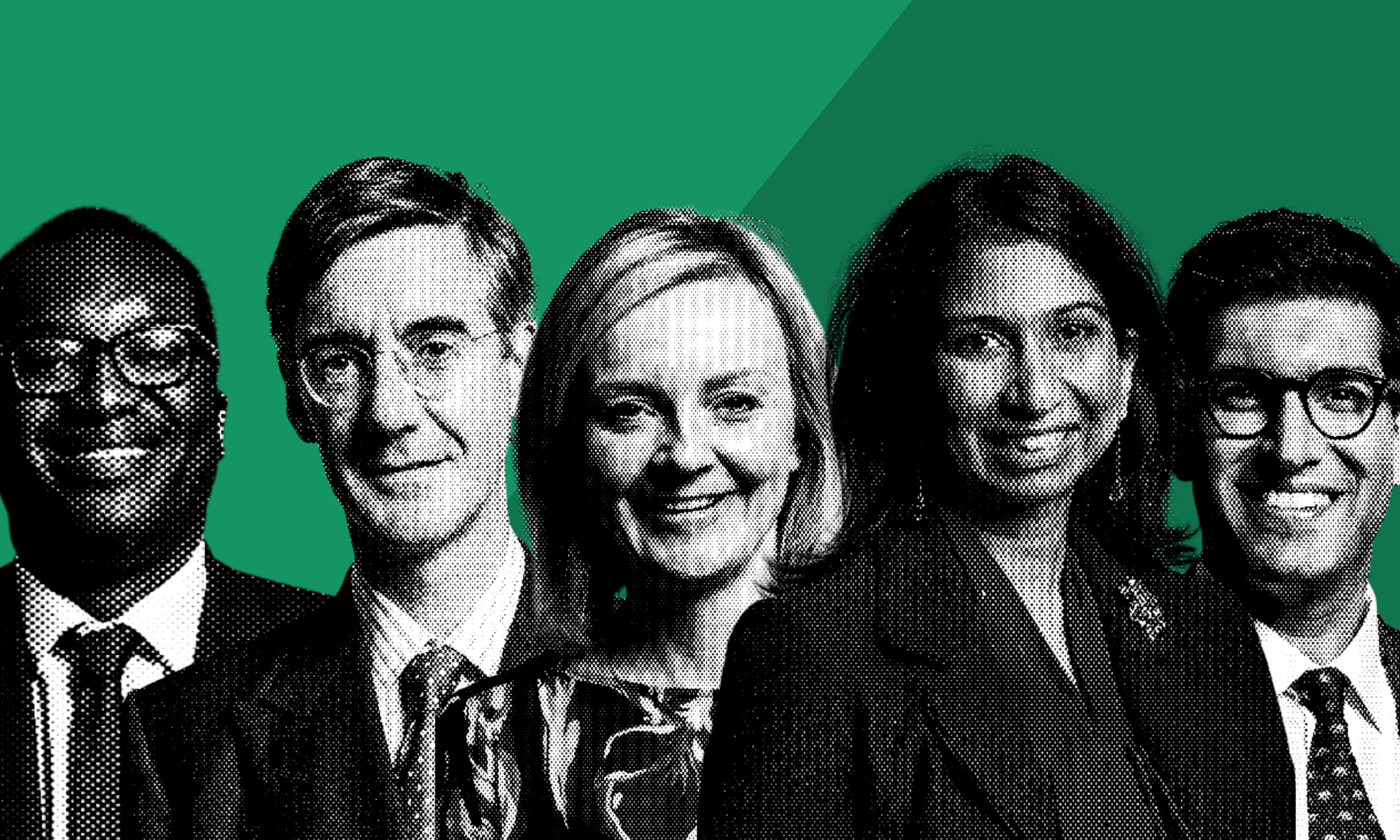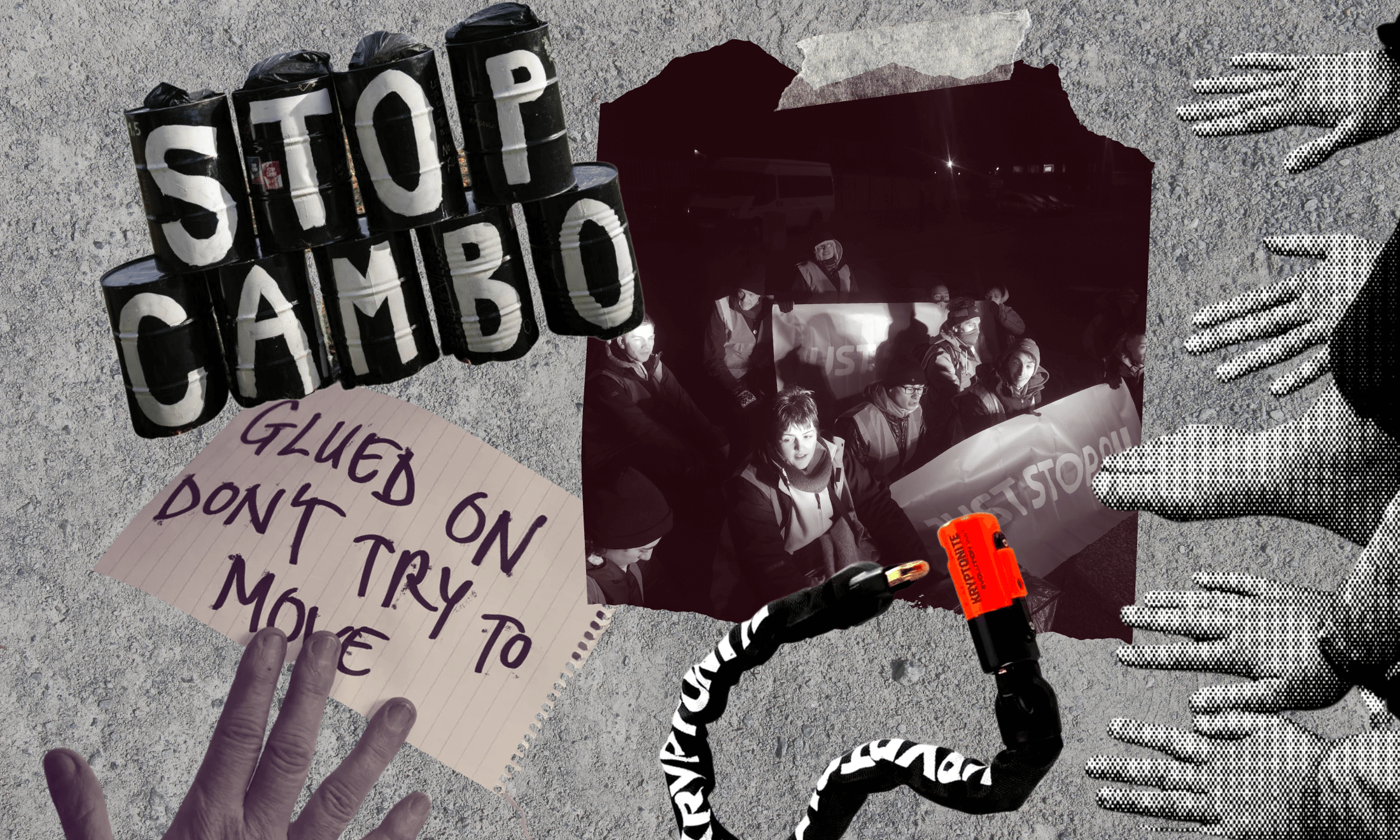
Chat shit, get barred: how the Tories are silencing journalists with call-out culture tactics
From ministers to garden-variety MPs, the Tories have alighted on a new method of attacking media critics.
Kimi Chaddah
05 Feb 2021
Last Friday, Equalities Minister Kemi Badenoch took to Twitter to air a grievance. In a thread, she outlined her complaint: a journalist, from the Huffington Post, had emailed to ask her a question. In response, Badenoch tweeted that it is “creepy and bizarre […] to demand [someone] explains themselves” and accused reporter Nadine White of “sowing distrust” and spreading “disinformation”.
While 10 Downing Street eventually distanced themselves from Badenoch’s conduct, this incident is symptomatic of a larger pattern that’s emerging among Tory MPs. It sees them attacking and attempting to individually discredit journalists in the UK, framing any sort of slightly pressing question as politically motivated smears. Badenoch – who was merely asked why she didn’t appear in a video directly related to her brief – tried to paint a simple question as “disinformation”.
Although Badenoch’s attempt was slightly too outlandish to succeed, even by Tory standards, it was clearly part of a wider narrative being peddled by several MPs who portray journalistic scrutiny as a personal vendetta. In the hands of the Tories, “disinformation” is anything that conflicts or contradicts the message they want the public to receive.
In January, newspaper The Yorkshire Post revealed government plans to divert allotted vaccine supplies from Yorkshire and the North East to regions that have been unable to vaccinate as many people. Multiple Tory MPs, including Nadhim Zahawi, minister for COVID Vaccine Deployment, took to Twitter to personally target journalist Robyn Vinter, who was responsible for the scoop, and the editor.
Without providing evidence to the contrary, Zahawi claimed the story was “wrong”, with other Yorkshire Conservative MPs also attacking the paper for the piece. Zahawi accused the editor of “resort[ing] to personal attacks”, Nigel Adams – minister for Asia – described the piece as “irresponsible and sad” and Simon Clarke slammed it as “dangerous and wrong”. The Post’s report was later confirmed to be true.
In May of last year, Jennifer Williams from MEN revealed the plan to scrap a scheme to house rough sleepers. She was also targeted, this time by the official Twitter account of the Ministry of Housing, Communities and Local Government. Tweets from the MHCLG handle personally accused Williams of running an “inaccurate article”. She replied with a screenshot of the report where the plans had been outlined by the government and said that she was just “doing [her] job”.
Just a day earlier, MHCLG – which is overseen by Robert Jenrick, minister for housing, had also attacked BBC Newsnight policy editor Lewis Goodall, via a statement posted to its official government webpage, accusing Goodall of inaccuracies in reporting on reduced funding for local councils in the north during the pandemic. In response, Goodall released the – perfectly above board – emails he’d sent to the ministry, asking repeatedly for comment – and their response, which didn’t address the questions.
These Tory attempts to delegitimise journalists parallel the accusatory tone of internet call out culture, which thrives on sowing doubt. Ministers publicly draw attention to individual journalists, rather than a faceless publication, deliberately drawing negative attention their way and attempting to enact a digital “pile on” that calls into question the accuracy of their reporting – and attacks their personal character. While it may not be as overt as telling somebody they should be “fired” or proposing the concept of “alternative facts”, the spectre of Donald Trump haunts British politics. Although the government is not publicly unleashing humiliating verbal tirades where individual reporters are told they’re “terrible”, “fake” and “nasty”, the goal – to discredit all journalists who don’t toe the government line – is the same.
“In the last two years, there have also been well-publicised attacks on UK journalists critical of an increasingly right-leaning political climate”
The impact goes beyond the digital world. Last week, photojournalist Andy Aitchison was arrested in Kent while photographing a protest against poor conditions in Napier Barracks, a military camp housing hundreds of asylum seekers. Despite having spent just minutes covering the brief protest, police arrived at Aitchison’s home six hours later and arrested him on suspicion of criminal damage.
In the last two years, there have also been well-publicised attacks on UK journalists who are critical of an increasingly right-leaning political climate, including left-wing commentator Owen Jones who was assaulted in 2019. The judge ruled the assailant had attacked Jones because of his “political views”.
The Tories have also adopted boycott tactics to silence critics in the media. From April 2019, amid the UK’s first national lockdown, 10 Downing Street announced they would no longer appear on ITV’s flagship talk show, Good Morning Britain, after co-host Piers Morgan began to criticise mistakes in their pandemic response. Lasting 201 days, the boycott was designed to frame GMB’s critiques as the bitter barbs from a show shut out of the loop. And it worked; one of the very first reviews that shows up on Google when you search for the programme proclaims that it “used to be good, when it had balanced opinions, but totally lost the plot [in] trying to attack the government ever since they refused to go on the show”. Chat shit, get barred, is the new Tory tactic when it comes to the media.
“This month saw Tory MP Liam Fox share an article that smeared a UCL scientist who had criticised the government’s Covid-19 strategy as a ‘hardline centrist’”
Even when the likes of Boris Johnson allow questions to be posed, as seen at the daily Covid-19 press conferences, it is to uphold an illusion of accountability, with ministers frequently evading difficult questions and disallowing follow-ups.
So effective have these tactics been, they’ve even started applying the strategy to other opponents. Last year, home secretary Priti Patel slammed legal personnel advocating for migrant rights as “activist lawyers”; a comment that was thought to have inspired a subsequent knife attack on a London law firm. And this month saw Tory MP Liam Fox share an article that smeared a UCL scientist who had criticised the government’s Covid-19 strategy as a “hardline centrist” (an oxymoron of outstanding proportions). In the accompanying tweet, Fox claimed it was “disgusting” that someone as “partisan” Professor Christina Pagel was speaking to the BBC on the topic, despite having no such qualms at similar appearances from the likes of far-right media personality Darren Grimes.
Silencing journalists is nothing new for right-wing governments. The focus on controlling the narrative and suppressing the voice of the media for political gain mirrors the behaviour of some of history’s far-right autocrats and dictators. In India right now, sedition charges are being weaponised by Narendra Modi’s Hindu nationalist government to undermine a free press and assert their authority. Eight journalists, who covered the shooting of a man during the latest set of demonstrations in the ongoing farmers’ protests, are now facing baseless criminal charges.
However, in the UK, it’s the tactics the government uses to try and suppress a free press that are new; what we’re seeing now are personal attacks directed, towards individual journalists, from the accounts and mouths of ministers themselves, using social media. They’ve caught up with the times.
The Tories want us to believe that there is no other option than to accept their messaging without question. Echoing their determinist rhetoric around the “inevitability” of the 100,000 lives lost to Covid-19, we are encouraged to make our peace with the idea that this is the way things must be. But without journalistic scrutiny, we become inured to the chaos and become complacent; the incompetence becomes background noise. So we must support journalists and the voices who challenge them – although let’s hold off on calling the likes of Piers Morgan a “hero”. This state-sponsored call out culture cannot become yet another bleak ‘new normal’ for the UK.

Young Black men are being jailed over text messages

Inside the online forums where anti-Gypsy, Roma and Traveller sentiment thrives

Revealed: ‘Shocking’ number of asylum seeker infant deaths in Home Office housing






